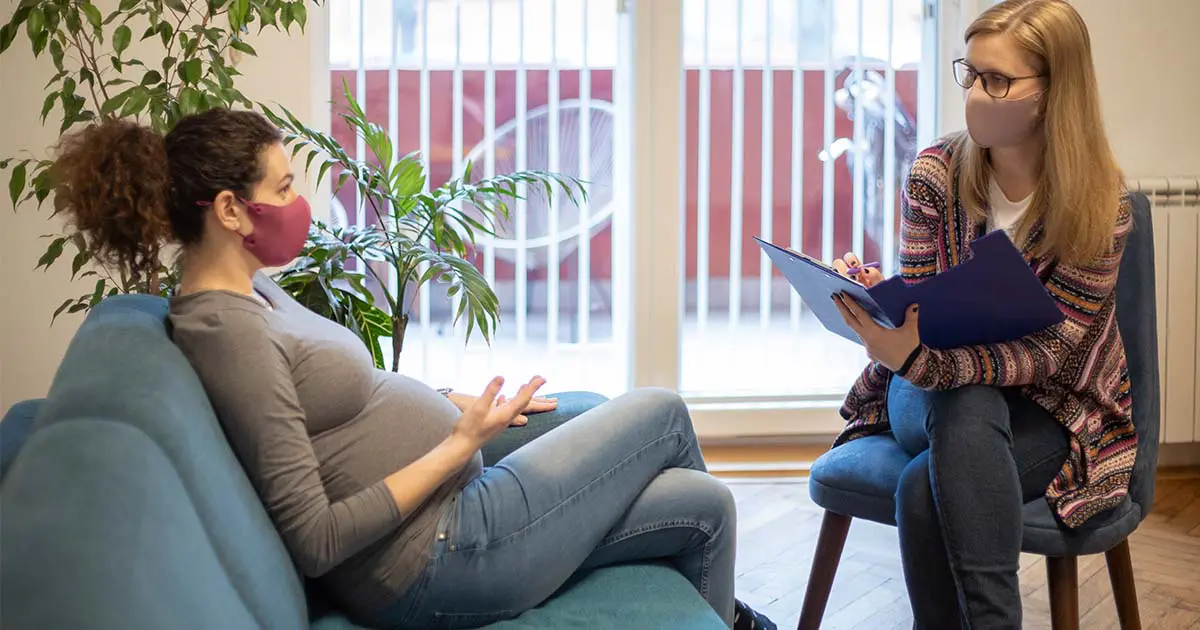Reproductive psychiatry focuses on mental health during important phases of reproductive life, such as pregnancy, postpartum, and menopause. Conditions like postpartum depression, anxiety, and premenstrual disorders can significantly affect well-being. Our team provides specialized care to help individuals manage their mental health during these transitions and live healthier, more fulfilling lives.
- Postpartum Depression: Postpartum depression affects many new mothers, causing feelings of sadness, exhaustion, or overwhelm after childbirth. It’s more than just the “baby blues” and can make it hard to bond with your baby or handle daily tasks. With treatment, including therapy and support, most mothers recover and feel like themselves again. If you’re struggling, you’re not alone, and we’re here to help.
- Premenstrual Disorders: Premenstrual disorders, like PMDD (Premenstrual Dysphoric Disorder), cause severe mood swings, irritability, or depression in the days leading up to your period. These symptoms can disrupt daily life and relationships. Treatment, including therapy, lifestyle changes, and medication, can help bring relief. If your symptoms feel unmanageable, we’re here to support you.
- Postpartum Anxiety: Postpartum anxiety involves intense worry or fear after giving birth, often about the baby’s health or safety. Symptoms can include racing thoughts, difficulty sleeping, or constant checking. It’s common and treatable, with therapy and support helping mothers regain a sense of calm and confidence. If you’re feeling overwhelmed, we’re here to help.
- Postpartum Psychosis: Postpartum psychosis is a rare but serious condition that can develop after childbirth. Symptoms may include confusion, hallucinations, extreme mood swings, or thoughts of self-harm. This is a medical emergency that requires immediate care. With the right treatment, recovery is possible. If you or a loved one are experiencing these symptoms, seek help right away.



